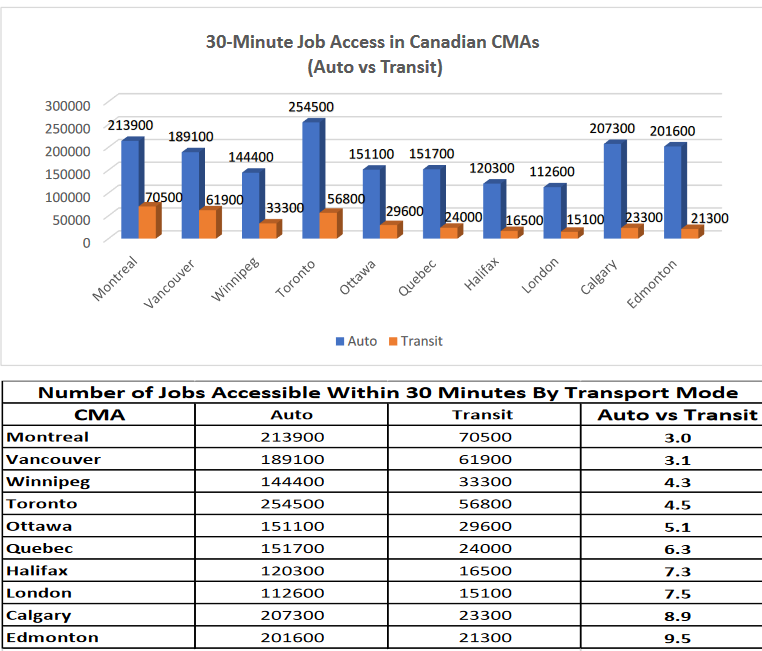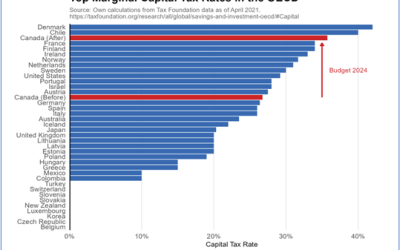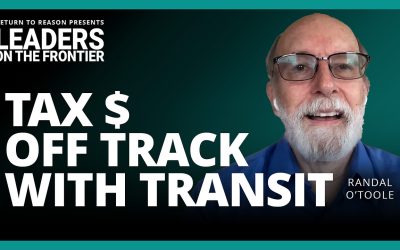• A recent University of Toronto paper by Jeff Allen and Steven Farber examines work access as measured in travel time to get to work. The “30-minute job access” is a rounded-up average in all heavily populated regions in Canada.
• The 2021 census revealed that nationwide, 66.8% of Canadian workers had a one-way travel time less than 30 minutes.
• Automobiles overwhelmingly dominate work access in the reviewed census metropolitan areas (CMA) in Canada compared to public transit which trail automobiles by multiple orders of magnitude.
• Transit in Montreal performs the best with automobiles providing 30-minute access to about 3 times (300%) as many jobs as transit. On the other end, automobiles provide access to almost 10 times as many jobs in a 30 minute trip in Edmonton.
• Canada’s transit commuting share of 30-minute accessible jobs remains a fraction of those available by automobile despite vast increases in public spending designed to decrease automobile usage.
• Governments and their politicians may see this data as a challenge to be met by policies that narrow the gap between auto and transit access. However, the chances of achieving this are virtually nil. Further, the remote work revolution following the Covid lockdowns will make it even less possible.
• Politicians and policy makers would be much wiser to end their focus on forcing or urging Canadians to use transit as opposed to automobiles. From an economic development perspective minimizing work trip travel times should be a primary objective. Improving and adding to road infrastructure is a much wiser use of tax money.
Download as PDF here



